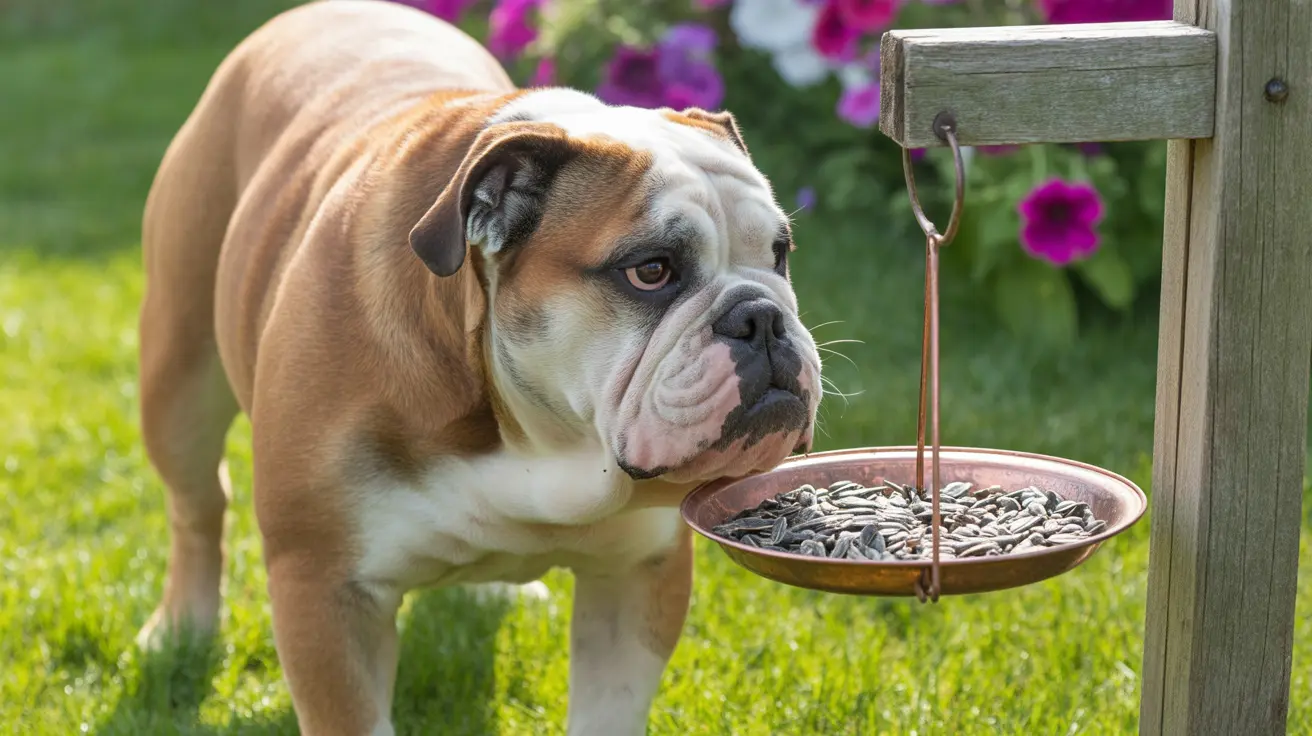Understanding the Dangers of Dogs Eating Bird Seed
Finding out your dog ate bird seed can be concerning for any pet owner. While small amounts of fresh bird seed may not cause immediate harm, there are several potential risks that deserve serious attention. From digestive issues to toxic exposure, understanding these dangers is crucial for keeping your pet safe.
Whether your dog raided the bird feeder or consumed scattered seeds from the ground, it's important to know how to respond and when to seek veterinary care. Let's explore the key risks, symptoms to watch for, and preventive measures you can take.
Immediate Health Concerns After Bird Seed Consumption
When a dog eats bird seed, the most common immediate reactions include gastrointestinal upset, vomiting, and diarrhea. These symptoms typically appear within a few hours of ingestion and may resolve on their own with small amounts. However, larger quantities can lead to more serious complications.
The risk of intestinal blockage is particularly concerning, especially in smaller dogs or when consuming seeds whole. Signs of obstruction include repeated vomiting, lethargy, loss of appetite, and abdominal pain. This condition requires immediate veterinary attention.
Hidden Dangers of Contaminated Bird Seed
Perhaps the most serious risk comes from moldy bird seed, which can contain dangerous aflatoxins. These toxic substances can cause severe liver damage and potentially fatal complications. Symptoms of aflatoxin poisoning include:
- Jaundice (yellowing of eyes and gums)
- Unusual bleeding or bruising
- Severe lethargy
- Loss of appetite
- Vomiting and diarrhea
Additionally, bird seed often becomes contaminated with bacteria from bird droppings, potentially exposing your dog to salmonella and other harmful pathogens.
Prevention and Safety Measures
To protect your dog from the dangers of bird seed consumption, consider implementing these preventive strategies:
- Install catch trays under bird feeders to minimize scattered seeds
- Place feeders in areas inaccessible to your dog
- Clean up spilled seed promptly
- Store bird seed in sealed containers out of your dog's reach
- Consider using shepherd's hooks or tall poles for feeders
- Create physical barriers around feeding areas
When to Contact Your Veterinarian
While minor incidents might not require immediate medical attention, certain situations warrant prompt veterinary care:
- Your dog has consumed a large quantity of bird seed
- You notice symptoms of blockage or severe digestive upset
- The consumed seed was visibly moldy
- Your dog shows signs of aflatoxin poisoning
- The bird seed mix contained known dog toxins like raisins
Frequently Asked Questions
What are the symptoms if my dog eats birdseed?
Common symptoms include vomiting, diarrhea, lethargy, and abdominal discomfort. More severe cases may show signs of intestinal blockage or toxin exposure, including jaundice, unusual bleeding, and severe digestive upset.
How can I prevent my dog from eating birdseed?
Install barriers around bird feeding areas, use catch trays under feeders, clean up spilled seed promptly, and place feeders in locations your dog cannot access. Consistent training and supervision are also important.
Is birdseed safe for dogs to eat in small amounts?
While fresh birdseed in small amounts may not cause serious harm, it's best to prevent any consumption as it can lead to digestive issues and poses risks of contamination or obstruction.
What are the risks of aflatoxin poisoning in dogs from moldy birdseed?
Aflatoxin poisoning from moldy birdseed can cause severe liver damage, bleeding disorders, jaundice, and potentially death. Symptoms may develop gradually and require immediate veterinary intervention.
How should I respond if I suspect my dog has ingested raisin-containing birdseed?
If your dog has consumed birdseed containing raisins, seek emergency veterinary care immediately, as raisins are toxic to dogs and can cause acute kidney failure. Do not wait for symptoms to appear.
Conclusion
While dogs eating bird seed is a common concern, understanding the risks and taking appropriate preventive measures can help keep your pet safe. Monitor your dog closely if they consume bird seed, and don't hesitate to contact your veterinarian if concerning symptoms develop. Remember that prevention is always better than treatment when it comes to protecting your furry friend from potential dangers.






